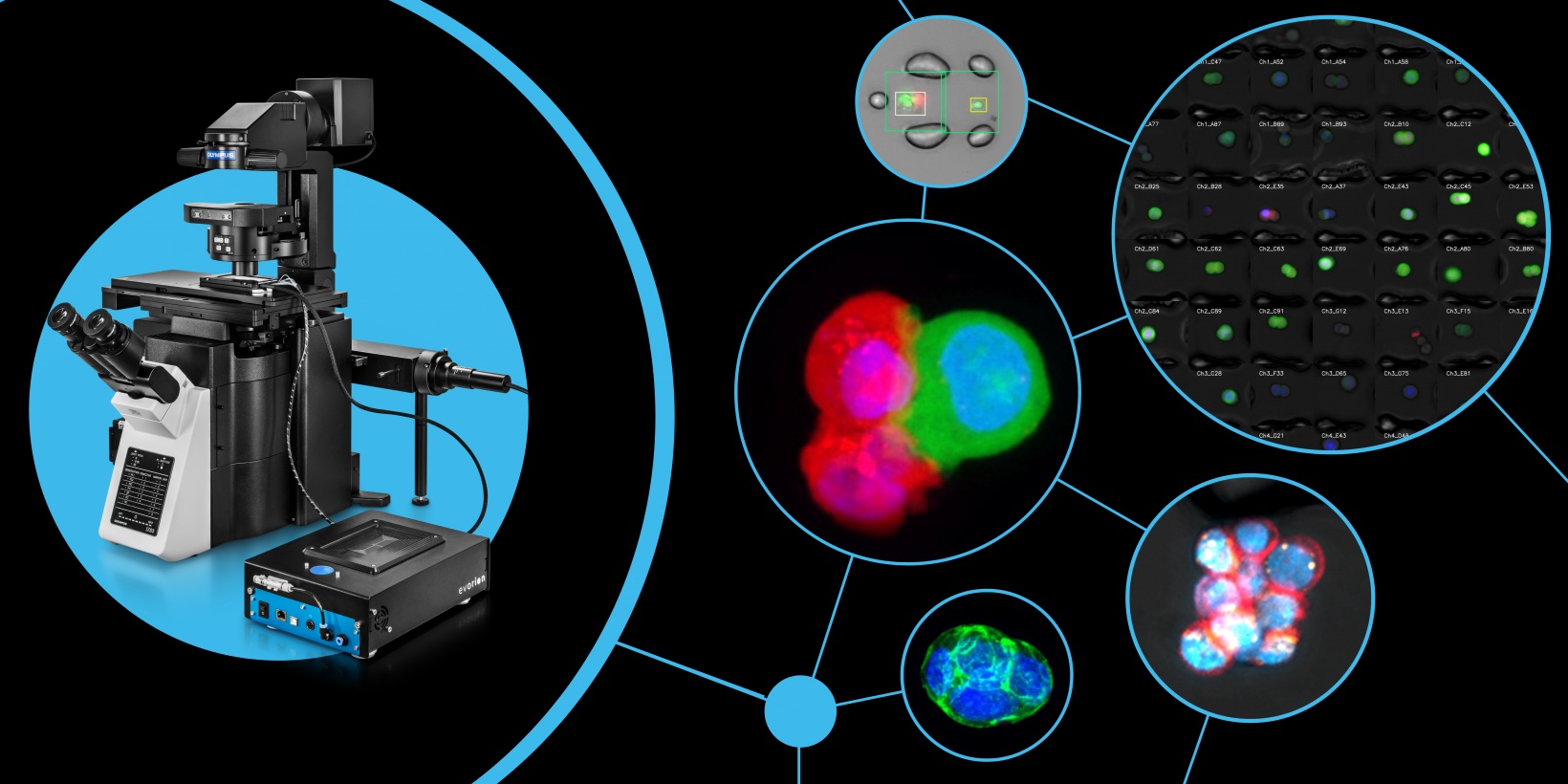The 3D microenvironment of cells in vivo plays an important role in biological systems, specifically in cell-cell interaction. However, it is quite challenging to replicate such a cellular microenvironment in 2D in vitro models. Several studies identified significant differences in 2D versus 3D in vitro models—impacting cell proliferation, differentiation, the release of biomolecules, cellular communication, and many others. Thus, gaining an in-depth understanding of the cellular and molecular mechanisms in the relevant physiological microenvironment is crucial.
To address this challenge, evorion biotechnologies developed the innovative CellCity System that enables multimodal analysis of thousands of dynamic cell-cell interactions in 3D microenvironments at a single-cell resolution. By encapsulating thousands of single cells or cell pairs on the CellCity Array Chip, researchers can track various functional phenotypes such as apoptosis, phagocytosis, proliferation, or material exchange in the temporal space. These observations can also be corelated with end-point measurements (e.g. immunostaining or FISH analysis) on the same chip for insightful characterization. Additionally, evorion biotechnologies and Evident have developed a largely automated workflow solution, that enables researchers to identify their cells of interest on the chip based on advanced artificial-intelligence (AI) algorithms for high-resolution imaging on IXplore microscopes, thus highly reducing time-consuming imaging routines.
About the presenter:
Hello. I’m Thomas Bauer-Jazayeri, Director of Marketing and Sales at evorion biotechnologies. I hold a PhD degree in Immunology, and the fields of immuno-oncology and cell therapies have always excited me. I have worked across different areas of life sciences including biotech, diagnostics, and analytical instrumentation.
Linkedin: https://www.linkedin.com/in/thomas-bauer-jazayeri-a281375/


